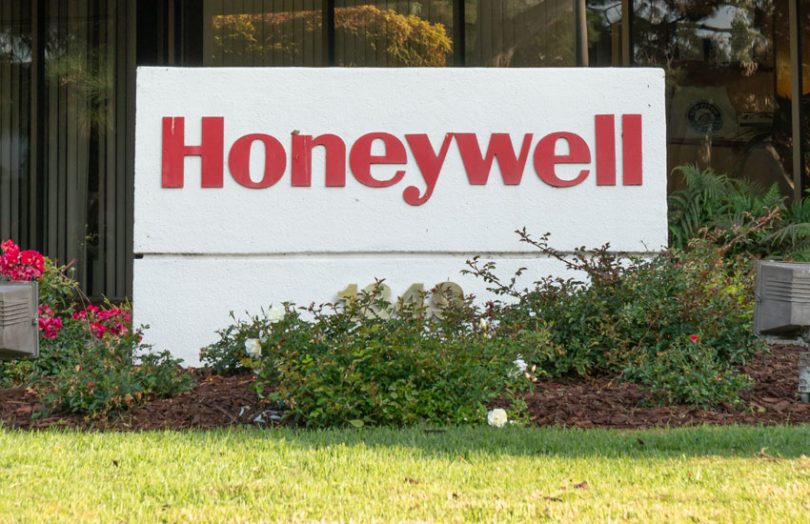Aviation is a fast-growing industry but still lacks digitization on several fronts. Yesterday, Honeywell announced partnerships with iTRACE and SecureMarking to prevent counterfeit aerospace parts by using the technologies in combination with blockchain.
The new system employs two-factor authentication of Honeywell Aerospace parts to ensure their authenticity. First, iTRACE’s 2DMI solution will laser-etch data onto the identification plate of a part on Honeywell’s assembly line. Then, a special ink is applied to the component. This comes from Honeywell’s Performance Materials and Technologies (PMT) business and SecureMarking, a third-party authentication company.
Once the part is ready for sale, iTRACE’s mobile app is used to scan the 2D matrix etched on the part to activate its digital authenticity. Honeywell’s blockchain will record this data along with the part information such as manufacturing and subsequent repairs.
The two-factor authentication will be useful for Honeywell’s GoDirect Trade aircraft parts e-commerce portal, which was launched last year. Blockchain will help to ensure the authenticity of the parts sold on the portal.
“Our mission is to build the first aerospace marketplace that customers can confidently buy quality parts from. Our work with Honeywell PMT, SecureMarking and iTRACE is bringing new levels of security to the aviation industry,” said Lisa Butters, general manager of Honeywell’s GoDirect Trade online marketplace.
In aviation, it is common to see parts and planes being leased or sold multiple times. This makes it very hard to verify the provenance of the aircraft parts. With blockchain, a repair technician can use the identification plate to verify the authenticity of a part and view previous maintenance events.
“We use upconverting nanoparticle ink to create physically unclonable codes, bringing the ability for every aerospace part to be stored on the blockchain network,” said Daniel Stanton, president of SecureMarking.
Innovative identification technologies are being increasingly used to verify the provenance of a product. IBM is working on a nano-chip that’s so small it is part of magnetic ink that could be used in pills. Sydney-based startup UCOT is using a microchip and sensor in product packaging to combat counterfeiting.
A key issue with blockchain is how to link a physical item to its digital fingerprint.
Blockchain firm Everledger is tagging luxury products with molecular DNA to guard them against counterfeiting. Credit Suisse and Innogy Ventures-backed startup ScanTrust has developed a QR code which cannot be cloned. Some of ScanTrust’s customers include Unilever, Dow Chemicals, and ABInBev, though not necessarily all for blockchain.







